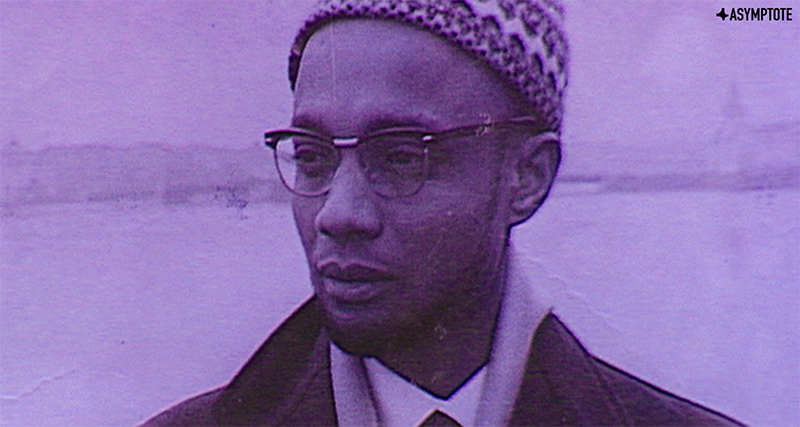This week, our editors bring news of what China’s recently announced five-year plan has in store for its writers and readers, and a(nother) reported death of Nigerian literature.
Xiao Yue Shan, reporting from China
I’m sure there are many who would agree with W. H. Auden’s assertion that: ‘In so far as poetry, or any other of the arts, can be said to have an ulterior purpose, it is, by telling the truth, to disenchant and disintoxicate.’ But the good members of the China Writers Association are not among them. 2026 marks the first year of the ‘Fifteenth Five-Year Plan’, which sets out China’s resolutions for social and economic development; within this ambitious blueprint (which interestingly highlights the state’s role in market management as well as the predictable emphasis on sustainability, innovation, and digital technology), there are distinct cultural goals, adherent to national ideology and inextricable from its constructions of power. Certainly, China has always held its literature in great esteem, exercising its political potentials more fervently than arguably any other nation, but even in our long parade of book-loving leaders, Xi Jinping has shown himself to be amongst the most ardent advocates for a symbiotic relationship between the arts and the state, following in the footsteps of Lu Xun in defining literature as first and foremost a form of guidance. As he stated in a speech at the 2014 Forum on Literature and Art: ‘Our contemporary writers and artists should take patriotism as the main theme in creation, guide the people to establish and adhere to correct views on history, the nation, the country, and culture. . .’
The ‘Fifteen-Five’, as the Plan is called, iterates the necessity of developing culture ‘in line with core socialist values’, mentioning seemingly innocuous intentions like ‘promoting the construction of a book-loving society’, as well as more zealous motives like ‘improving the ability to guide mainstream opinion’. Overall, it continues the lineage of CCP policies to unify, optimise, and regulate, with a lot of ‘expanding’ and ‘enhancing’ (toe-curling words for those of us who fear the hyperactive thrust of our moment). In following these mandates, some of the Association’s strategies are standard—such as the “全民阅读促进条例 Regulations on Advancing Reading for All’, which includes increasing publicly funded literary events, as well as a plan to send writers and literati to rural areas (sound familiar?) to encourage engagement and to ‘beautify’. Others are combating newly urgent issues such as AI, looking to fortify copyright laws and educate literature workers as to the available protections. READ MORE…



Translation Tuesday: “The Lost Spell” by Yismake Worku
Now I am only a sorrier version of the dog that traversed through the forest with the grace of a cheetah.
For this week’s Translation Tuesday, visionary novelist Yismake Worku adopts fantasy and satire as probing social commentary in this excerpt from The Lost Spell. While researching a book of spells, a wealthy man transforms himself into a dog. We follow the (now) canine protagonist as he journeys to Addis Ababa, and through his eyes we witness the sublime beauty of the Ethiopian landscape. The story of one man’s literal dehumanization allegorizes the abasement our narrator witnesses around him as he simultaneously lauds and laments his country. Through the narrator’s unique position as both subjective participant and objective bystander, Worku presents a fly-on-the-wall (or a dog-on-the-road) view of contemporary Ethiopia that is at once a critique and a bittersweet love letter.
It has been a horrible few days. I feel like some life has been drained from my short dog existence. If I hadn’t managed to drag myself into the middle of a corn farm, I would have been picked apart by merciless scavenging birds.
The cause of my pitiful circumstances was an auto-rickshaw accident. If the God of dogs and all creation hadn’t spared me, I would have departed my dog life by now. The rickshaw didn’t hit me full on; it knocked me on my left rear, bending me like a rubber and causing me to plunge into a drain. An unseasonal rain had been pouring down all evening. So, the flood could have carried an elephant, let alone a battered dog. It hauled me along the garbage of Shashemene. Banging me around with every object it carried along, the flood finally threw me into a small river. The river in turn dragged me through shrubs, sometimes battering me against rocks, and deposited me near a cornfield. READ MORE…
Contributor:- Bethlehem Attfield
; Language: - Amharic
; Place: - Ethiopia
; Writer: - Yismake Worku
; Tags: - allegory
, - amharic
, - ethiopia
, - satire
, - social commentary